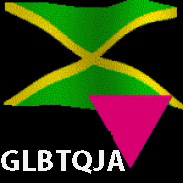
I’m repeatedly asked why I so vociferously support gay rights, especially in the face of Jamaica’s deep-rooted fear of homosexuality (homophobia).
We’re all products of our experiences. One of my best friends at secondary school was homosexual. Naïve as I was then, it was two years before I even suspected his sexuality. He was always, shall we say, ‘different’. For example, he seemed obsessed with his penis, which he said he measured every night and reported any lengthening at school next morning. He enjoyed teaching us penis trivia. His favourite factoid was that the penis has no muscles. That last bit earned him his nickname of ‘Musclecock’ (‘Muscle C’, or just plain ‘Muscle’ for short).
Muscle C, though average in traditional academics, was brilliant. He was extremely creative and an excellent young actor. He became president of the Drama Society. I was vice-president. We adapted an Alfred Hitchcock (no relation) short story into a play in which he played the lead (a professor who’d murdered his wife) and I played a largely inaudible police detective. He was a huge success. I was eminently forgettable. He became editor of the school magazine and produced the bestCampionite to that point, which can still stand against anything currently published. Again, I was his deputy. When he left after fifth form, I succeeded him in both posts.
SHOCKER
One Sunday, while in fifth form, he invited me to spend the day at his home. This was standard among school friends. My mother dropped me off that morning. That his parents, successful members of Jamaica’s upper crust, weren’t at home didn’t ring any immediate bells. He was a very dramatic chap who liked to feign sophistication, so when he made strawberry daiquiris as aperitifs, still nary a ding-dong entered my head.
Then he served lunch, including a pte de foie gras appetiser. Still, nothing dropped. Finally, when he invited me into his bedroom to see hisPlayboy collection, bright lights went on. Chuck Berry would have seen them earlier:
My ding-a-ling, my ding-a-ling,
Won’t you play with my ding-a-ling.
I called my mother and bolted from there like a bat out of hell.
Looking back, I’m not proud of my subsequent behaviour at school as I distanced myself from him. At the time, I knew no other way to react.
So, we drifted apart, and he left Jamaica to study Egyptology (kiss me neck!) at the exotic University of Cairo. He wrote me some brilliantly humorous letters, and I may have replied once but, by then, I’d moved on. I heard he’d returned home and was having trouble with his parents, who couldn’t understand him. They thought ‘gay’ was a disease and committed him to St Joseph’s mental ward. I visited him once. It was depressing to see my old friend so lost, confused, sedated and alone.
Sometime later, I heard he’d committed suicide. He was 20 years old.
Dramatic to the end, he poured gasolene on himself; lit himself afire; and ran into the street screaming, “I want to die,” with his father running behind him holding a glass of water. Or so I heard.
TICKET TO ASYLUM
When my parents first separated, my mother rented a room (called ‘boarding’ then) in a married couple’s (‘Freddy and Dolly’) home. She was friendly with Dolly. Freddy was a brilliant, creative producer/director in the early days of JBC TV. They’d appeared happily married for years until, one day, Dolly came home unexpectedly and caught Freddy in flagrante delicto with his boyfriend. She went directly to the asylum; didn’t pass ‘go’; didn’t collect $200.
These two very human situations indelibly etched themselves on my psyche. After years of introspection, I came to realise a few truths. If only Muscle’s parents were more accepting; if only we, including me, had been more respectful of his ‘being’ instead of constantly mocking him for ‘being different’, maybe he’d be alive today and Jamaican theatre much the better. If only society had allowed Freddy to ‘be’ without stigma, maybe he wouldn’t have felt the need to trick Dolly into a fake marriage. Maybe if society allowed him to marry his boyfriend, Dolly would’ve found Mr Right, and there’d be two happy couples instead of none.
Instead of spreading unreasoned fear by blaming dread diseases on promiscuous gays, perhaps we should consider creating a safe environment for gays to leave the closet and openly enter long-term, committed relationships, thereby reducing the promiscuity level. Maybe gays’ ‘promiscuity’ is inversely proportional to society’s tolerance.
Peace and love.
Gordon Robinson is an attorney-at-law. Email feedback to columns@gleanerjm.com. Also check out this 2008 article by him so he has been consistent: Point Counter Point Wake Jamaica

I go to see everyday a few websites and websites to read articles, however this web site provides quality based articles.
LikeLike